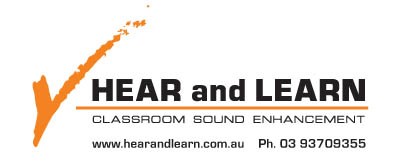Talking Spaces 8: Event Highlights
On 22 and 23 February, 2018 LEaRN held their eighth Talking Spaces conference. The event was a huge success, attracting over 150 local and international designers, educators and policy makers passionate about learning spaces. Notably, the event was opened by The University of Melbourne's Vice Chancellor, Prof Glyn Davis.
Highlights of the event can be found on Twitter by viewing the @LEaRNUniMelb account and/or searching #TalkingSpaces8.

Photo by Cisilia Goh. Written and compiled by Bella Bower, Research Coordination and Communications Officer.
Reflection
Thursday 22 February at the Woodward Conference Centre
On day one we delved into International Insights on Innovative Learning Environments. Drawing on the growing knowledge of the Innovative Learning Environments and Teacher Change (ILETC) project, LEaRN members A/Prof Wes Imms and Dr Marian Mahat discussed what is 'effective'. ILETC Research Fellow Chris Bradbeer and PhD candidate Anne Knock joined the first panel conversation, where they tackled moderator and audience questions about ILEs and teacher change.
Next up, Global Chair-Elect of the Association for Learning Environments (A4LE) and Director of EIW Architects, Philip Idle took us on a journey across the world of learning environments. Witnessing spaces from China to Africa to the United States, the Geographies keynote explored important issues influencing the design of learning environments, such as urbanisation and the climb of high-rise schools, and education as a pathway out of poverty. Philip was joined by John Augeri and Chris Keating for the second panel Q&A. Facilitated by A/Prof Clare Newton, we asked what is influencing school design in Victoria, and what influence are we having globally. Aspirations across different regions of the world were compared and contrasted and we looked at how government planning, procurement and delivery processes for built facilities differ and what the impact of this looks like.
Dr Pamela Woolner from Newcastle University (England) asked what counts as an ILE? She looked at societal expectations, educational policy and practice outcomes’. Joining in for the Societies panel session moderated by Dr Ben Cleveland was Sarah Ball and John Dainutis. They were asked how does societal context influence what facilities are delivered, and should societies create the education model or should the education model create the society?
Our last day one speaker was Kathleen Donohoe from the New South Wales Futures Learning Unit. She addressed the issue of 'ownership' of school design and how to support learning space implementation from a government perspective. Prof Tom Kvan moderated our final panel session with Peter Malatt and Christopher Kommatas. They discussed what sort of schools do we really want, or need, in the future? To deliver these, what are the key issues we need to focus on?
Friday 23 February at Albert Park College Environmental Arts Hub
For our second day we 'took-over' the Albert Park College (APC) Environmental Arts Hub (Year 9 campus). The audience split into the schools house groups (Lead, Create and Inspire) to participate in a series of workshops. All hands were on deck and a myriad of artefacts were created as the teams Researched, Digested and Implemented a range of issues and idea currently at play in the learning environment 'space'!
Resources
Our keynote presenters have generously allowed us to share their presentation slides.
| ILETC project | A/Prof Wes imms and Dr Marian Mahat | |
| Global Connections | Philip Idle | |
| What counts as an ILE? | Dr Pamela Woolner | |
| Informing design, Effective use | Kathleen Donohoe |
In addition, Pamela has shared this open access paper.
Structural change from physical foundations: The role of the environment in enacting school change | Pamela Woolner, Ulrike Thomas, Lucy Tiplady | View PDF |
We also have made available the 'Digest' stream materials from day two.
| Timeline | Dates | Arrows | Cheat Sheet |
|---|
| Mix and Match | Hexagons |
|---|---|
| Wildcard | Card Deck |
Please note: If using any of the above resources, please recognise who they were developed by and reference accordingly.
Acknowledgements
This event could not have run without the generous support of our sponsors.
LEaRN would also like to thank Research Coordination and Communications Officer, Bella Bower and Program Delivery Specialist Vicki Vlahos for organising the event.
 |  |  |  |